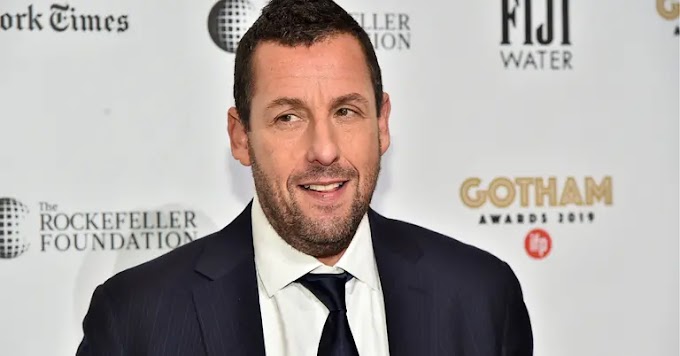 |
| Former US President Donald Trump (AP Photo/Jose Luis Magana, File) |
The Trump Organization is grappling with the aftermath of a recent fraud ruling that holds Donald Trump liable for fraud, leaving his attorneys in a state of uncertainty regarding the future of the organization bearing his name.
The ruling has raised significant questions about the trial's scope and implications for Trump's business empire. Trump's attorney, Christopher Kise, expressed concerns about the trial's direction and the unresolved issues stemming from the judge's decision. The lack of clarity about the ruling's reach has left the legal team pondering its impact on the company.
Highlighting the immense scale of Trump's business holdings, Kise admitted to uncertainty regarding which entities under the Trump Organization fall under the purview of the ruling by Judge Engoron.
In a rare move, Judge Engoron's ruling mandates the appointment of a receiver to oversee the dissolution of corporate entities associated with Trump's businesses. This decision is typically reserved for cases involving substantial business fraud. Legal expert Simon Miller noted that such appointments are extraordinary, emphasizing the gravity of the situation.
The process of selecting a receiver will involve proposals from both sides based on a court-approved list, with the final decision resting with the judge. However, many questions remain unanswered, including how the receiver will manage property dissolution, the potential impact on properties beyond New York state, such as Mar-a-Lago, and the feasibility of transferring New York-based assets to out-of-state entities.
Miller emphasized the potentially destabilizing effect of an independent receiver having control over all these assets within the organization. The operational details of the receiver's role will be a subject of discussion between the involved parties.
The lawsuit encompasses two New York properties: the commercial tower at 40 Wall Street and the Trump family compound at Seven Springs. Trump's legal team, caught off guard by the ruling, is now scrambling to decipher its implications and determine what actions may be required to comply with the judge's unexpected decision.
Officials from New York Attorney General Letitia James' office also expressed the need for additional time to review the order, highlighting the significant changes in the fraud case's landscape following the ruling.
Judge Arthur Engoron extended the timeline for the appointment of a receiver and the formulation of a dissolution plan to 30 days, up from the initial 10, addressing the uncertainty surrounding the process. Despite the ruling and its impact, the trial is set to proceed as scheduled on Monday, according to the judge's announcement.
Justice Arthur Engoron, who ruled that Donald Trump was liable for fraud, did not address whether his decision would require the former president to sell his prized real estate properties. At a hearing on Wednesday, Trump's lawyer, Christopher Kise, asked Engoron about the cancellation of business certificates that allowed Trump's businesses to operate. The ruling potentially opens the door for Trump to give up control of properties such as Trump Tower, golf courses, and his family estate. However, Engoron has not yet made a ruling regarding the sale of these assets. Last year, the judge appointed an independent monitor for the Trump Organization.
Despite the scathing decision and subsequent criticism, the hearing on Wednesday was surprisingly subdued. Kise, who had previously criticized Engoron's ruling, referred to the judge as "extremely intelligent." Both parties temporarily withdrew their motions surrounding evidence and testimony, agreeing to consider them as the trial proceeds. Engoron also granted a defense request for more time to recommend receivers. The defendants plan to appeal Engoron's decision, which could significantly narrow the issues to be heard at trial.
Donald Trump, who is currently the frontrunner for the 2024 Republican presidential nomination, vehemently denied committing fraud and called Engoron "DERANGED." It is important to note that this civil case is separate from the four criminal indictments that Trump is facing, including charges related to attempting to overturn the 2020 presidential election. A state appeals court is expected to rule on Trump's request to delay the trial this week. In an unusual move, Trump recently sued Engoron, accusing him of ignoring a previous appeals court ruling that would have allegedly weakened the case against Trump.
Justice Arthur Engoron's decision regarding Donald Trump's fraud liability left the question of asset sales unresolved. While the ruling could potentially lead to Trump giving up control of valuable properties, such as Trump Tower, the judge did not provide a definitive ruling on whether these assets would need to be sold. The hearing on Wednesday remained peaceful, despite earlier criticism from Trump's legal team. Both parties agreed to temporarily withdraw motions and consider them as the trial progresses. Trump plans to appeal the decision, which could lead to a narrower trial scope. Additionally, Trump is currently facing unrelated criminal indictments, and a state appeals court is expected to rule on a request to delay the trial. Trump also filed a lawsuit against Engoron, accusing him of ignoring a previous appeals court ruling.

.jpeg)




